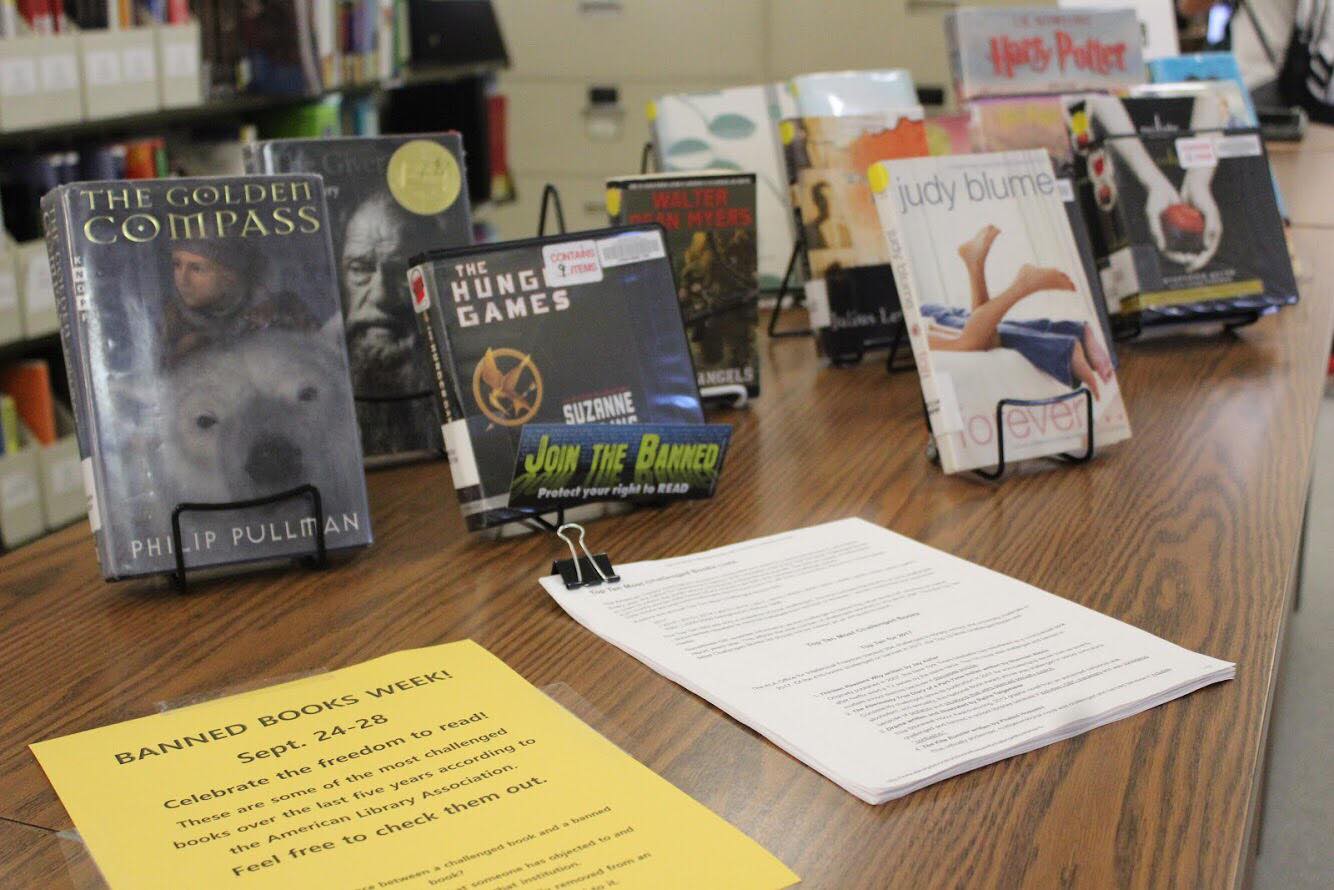Alexander Gent
agent@lc.edu
Students of schools and children at libraries implementing book bans may have missed Ronald Weasley’s sound advice because it happened to be in one the most banned/challenged book series since 1999, the “Harry Potter” series.
416 books were banned or challenged last year, and Reid Memorial Library (RML) aimed to raise awareness of the threat to free thought – that happens when schools and libraries ban or restrict books from the curriculum- by taking part in a celebration of the American Library Association’s (ALA) “Banned Books Week”.
It helps to raise awareness by “connecting the entire book community-libraries, booksellers, publishers, journalists, teachers and readers of all types in shared support of the freedom to seek and express ideas, even those some consider unorthodox or unpopular,” the ALA said.
In honor of Banned Books Week (Sept 23-29) Liz Burns, assistant director of instructional services at RML arranged a scavenger hunt that encouraged students to read books from this year’s banned/challenged list. Red and yellow “postcards” were placed around campus for students to find with instructions to collect a “sweet” prize or a book from the banned/challenged list. By the end of the first day over half of the challenged books had already been collected by students.
ALA’s Office for Intellectual Freedom annually collects data on banned/challenged books and compiles a list to inform the public of censorship efforts affecting schools and libraries nationwide. The office has published top 10 lists since 2001 and has a list of top 100 banned books dating back to 1990, having only started collecting data around that time.
Throughout her 21 years at the library, Burns has always tried to highlight the week with activities, book displays, or trivia games. She explained that no books have been challenged/banned during her time here, and that is most likely due to that fact that RML primarily provides specific educational reference and resources.
Eleanor Diaz of the ALA said that by tracking trends the OIF has discovered in recent years that subjects dealing with color and race, LGBTQ+ issues or diverse materials, in general, are challenged most often.
One of the books given away, “The Hate U Give” was number 8 on the 2017 list. The story is centered around the life of a 16-year-old African-American girl who is drawn to activism after witnessing the police shoot and kill her childhood friend.
Reasoning that the book might promote anti-police sentiment, Charleston Area Fraternal Order of Police challenged its appearance on a summer reading list for students of a high school in Mt. Pleasant, SC. A “Post and Courier” newspaper article about the situation says it was unclear if anyone in the Fraternal-Order had actually read the book because the Order did not respond to a request for comment on the matter.
Stories like this are commonplace, with the ALA receiving a new challenged book nearly every day. In the days before “Banned Books Week” The Sun Journal chronicled the story of Rumford Maine community members joining together to defend a library’s display of books with “LGBTQ+” themes or characters.
Banned Books Week raises awareness for only one week each year, but everyone is encouraged to participate during that week and the rest of the year by renting a book from the banned list that challenges them and expands their worldviews.




